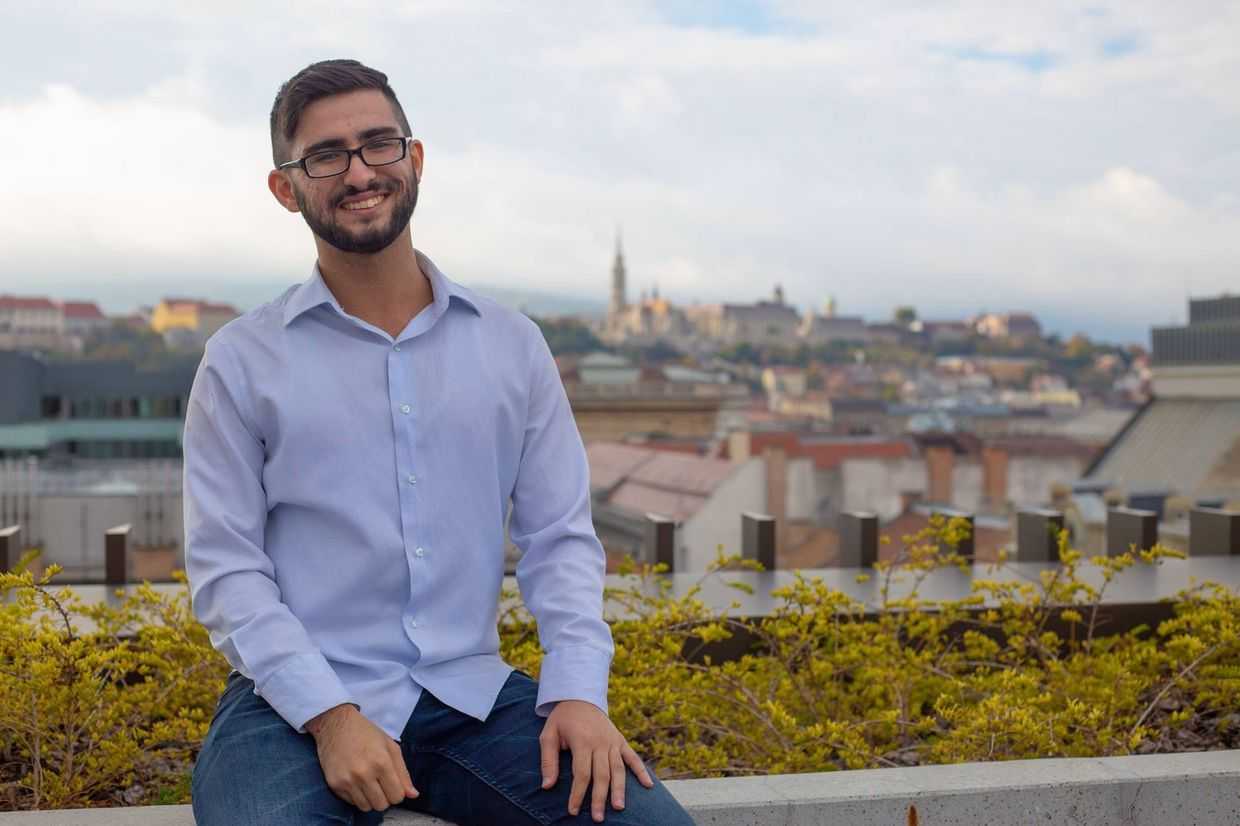
Since ferocious anti-government and pro-EU demonstrations flared up in Georgia at the end of last month, some Georgians living across the world have returned to their country to take to the streets and join the fight.
When restaurateur Kate Gochashvili’s family reunites in Tbilisi, it is always a special occasion. Based in New York, she is the frontwoman of the family-run Georgian fusion restaurant Cheeseboat, which spans two venues in Manhattan and Brooklyn.
Kate — known to patrons as ‘Mama Cheeseboat’ — says that Cheeseboat helps to bring New Yorkers closer to Georgian culture. It is also a way for her to feel connected to home.
That connection has only strengthened with the recent turmoil. Along with other Georgians in New York, Kate protested from afar against the recent election results and the government’s decision to shelve EU accession talks.
But as the family watched the scale of the violence unfolding against protesters back in Georgia after the government announced its pivot away from Europe on 28 November, they started feeling that they were not doing enough. Sitting around the table together, it did not take them long to come to the decision to fly back to Tbilisi together.
It would be the first time in years that the family returned spontaneously, without arranging business meetings or gatherings with friends. They travelled straight from the airport to Rustaveli Avenue, heavy suitcases in tow. When they arrived in the early hours of the morning, the thoroughfare was still filled with familiar faces.
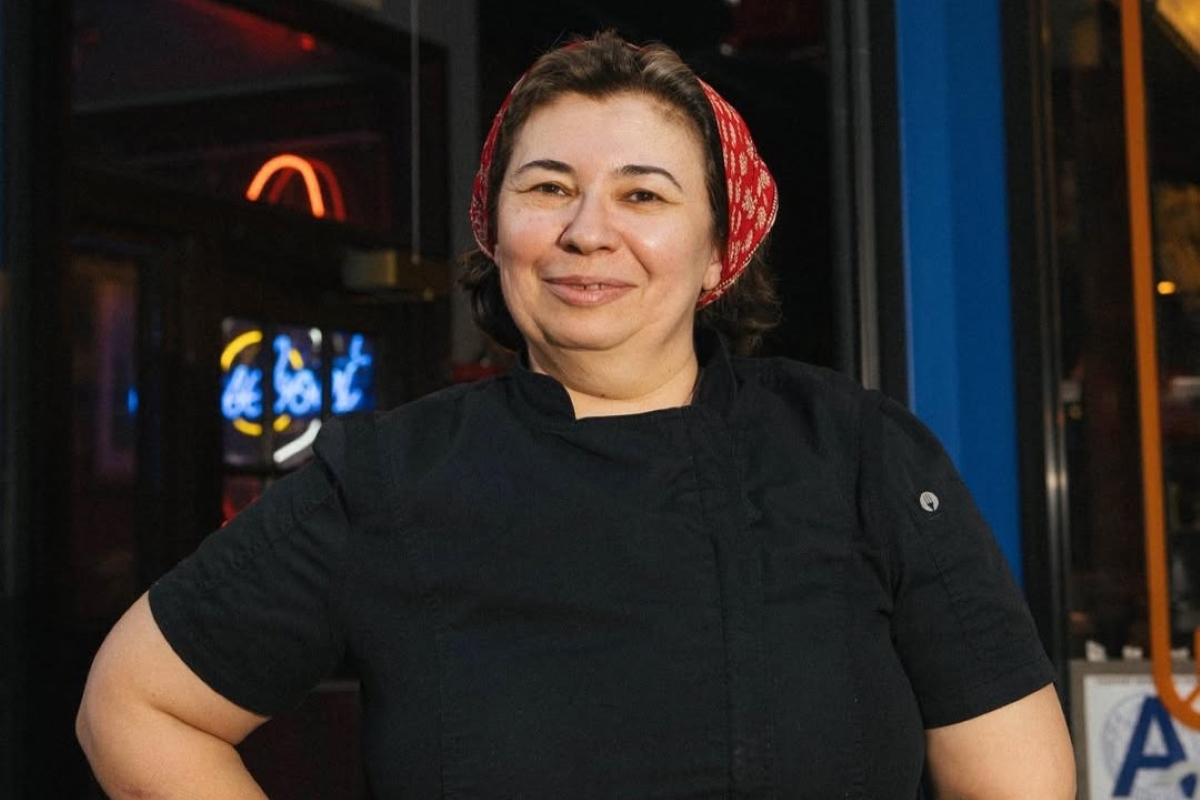
Kate’s eyes shine as she discusses the protests. She used to live in Tskhinvali (Tskhinval), the capital of South Ossetia, but she was displaced by conflict. She says that the traumas of the war are more alive than ever at the moment. ‘I lost my house, I lost my city, and now I have the feeling that I am losing my country’, she says.
‘When you lose your home, you can find a home anywhere’, she says of New York, adding that the city accepted her with open arms. But the fear of seeing Georgia regress into authoritarianism looms large for her, even if she lives far away.
Nonetheless, she is optimistic about the current wave of protests, which she says are different to anything she has witnessed in Georgia for years.
‘Nobody will be on their side’, she says, referring to the ruling Georgian Dream party. ‘Because the future is on our side’.
Kate’s family are just some of the Georgians living abroad who have travelled thousands of miles at short notice to join a relentless schedule of nightly protests. Their grievances span the suspension of EU accession talks by the ruling Georgian Dream party, disputed election results, media repression, and police brutality against protesters.
‘We are going to build a democratic country’
Tamara Jobava, a digital marketer, has lived in the Netherlands for two years.
‘In my head, I still don’t accept that I’m an emigrant’, she says. ‘I’m obsessed with my country; I love my country’.
She has returned to join the protests, where she holds a sign reading ‘FREE ALL UNJUSTLY ARRESTED’.
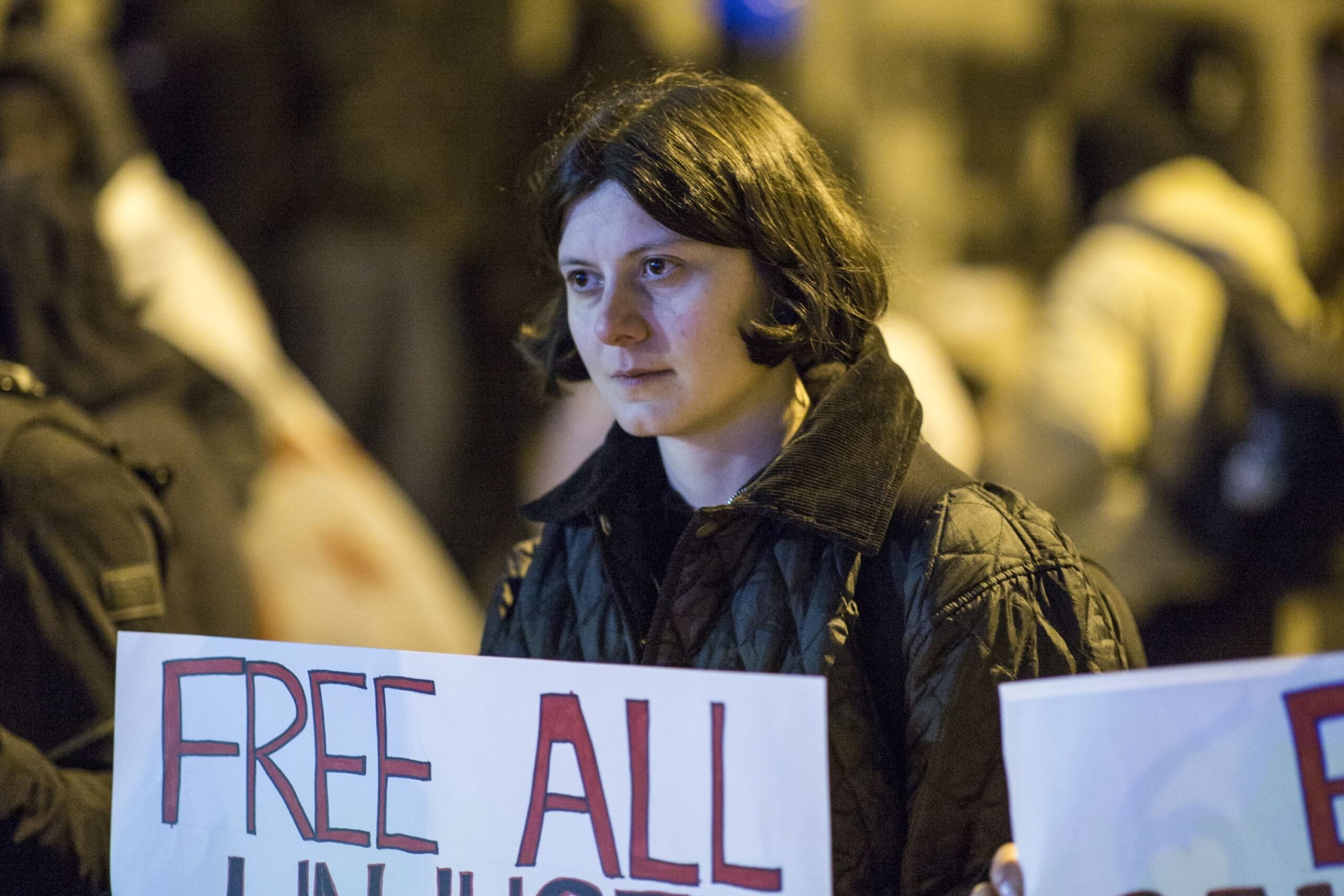
‘The time has come for us to defend our country’, she says. ‘If we are not loud and clear now, we might become Belarus’.
‘We have a lot to work on’, she acknowledges, ‘and this will not end with these protests or even new elections’.
But seeing so many people take to the streets has bolstered her hope in Georgia’s future — a future in which she plans to live, buy a winery, and raise children in her homeland. In building this future, EU accession is a priority for Tamara.
‘We are now heavily dependent on Russia and that paralyses us’, she says. ‘If we belong to the European family, then we can thrive’.
‘We are going to build a democratic country’, she asserts. ‘When we’re powerful, we are loud like this, and the government cannot corner us anymore’.
‘I purchased my ticket and flew here within two hours’
Besiki Kutateladze, a professor at Florida International University, has lived in the US for 23 years. When we meet to speak on Besiki Street in old Tbilisi, he says that he has just witnessed a group of masked thugs — believed to be backed by the government and referred to by the Ukrainian slang term ‘titushky’ — attacking people on the street as police stood by.
‘There is no state here anymore. People just have to defend themselves’, he says.
He flew from Miami after seeing a video of riot police kicking a boy in the face and neck as he lay prostrate on the ground. He purchased a ticket, and within two hours he was on his way to Georgia.
‘I was hoping that this country was on a good trajectory, but over the last few years it has been a total regression towards this authoritarian regime, where we are worse than Putin’s back yard’, he says.
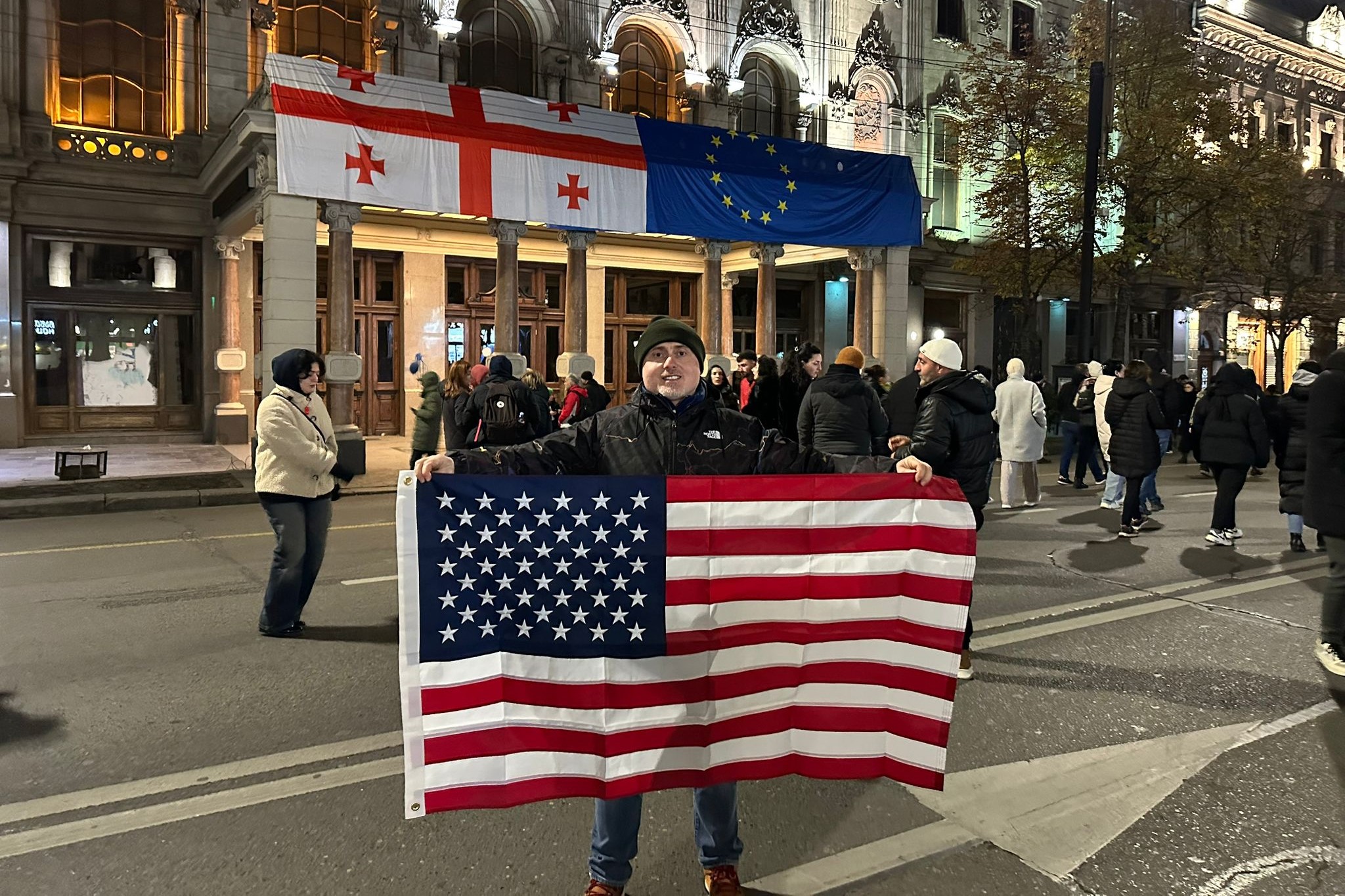
His sister has also flown from London to join the protests.
‘Emigrants have to do more to save this country’, Besiki says. ‘We have no other option. I cannot abandon these people on the street fighting for their freedoms, fighting to save statehood, fighting to save their lives’.
‘There is almost no support for Georgian Dream among the diaspora’
Nodar Rukhadze, a prominent anti-government activist and journalist who founded the civil Shame Movement to promote democratic reforms and Euro-Atlantic integration in Georgia, has lived in London for the past year and a half, doing a master’s degree in Political Science. For the first five days after protests broke out, he watched them from afar and felt paralysed by his inability to help.
‘I checked ticket prices on a whim’, he says. ‘For the first time in a year, the cost was unusually affordable, and it felt like a sign’.
Within hours of purchasing his ticket, he was on his way back to Georgia.
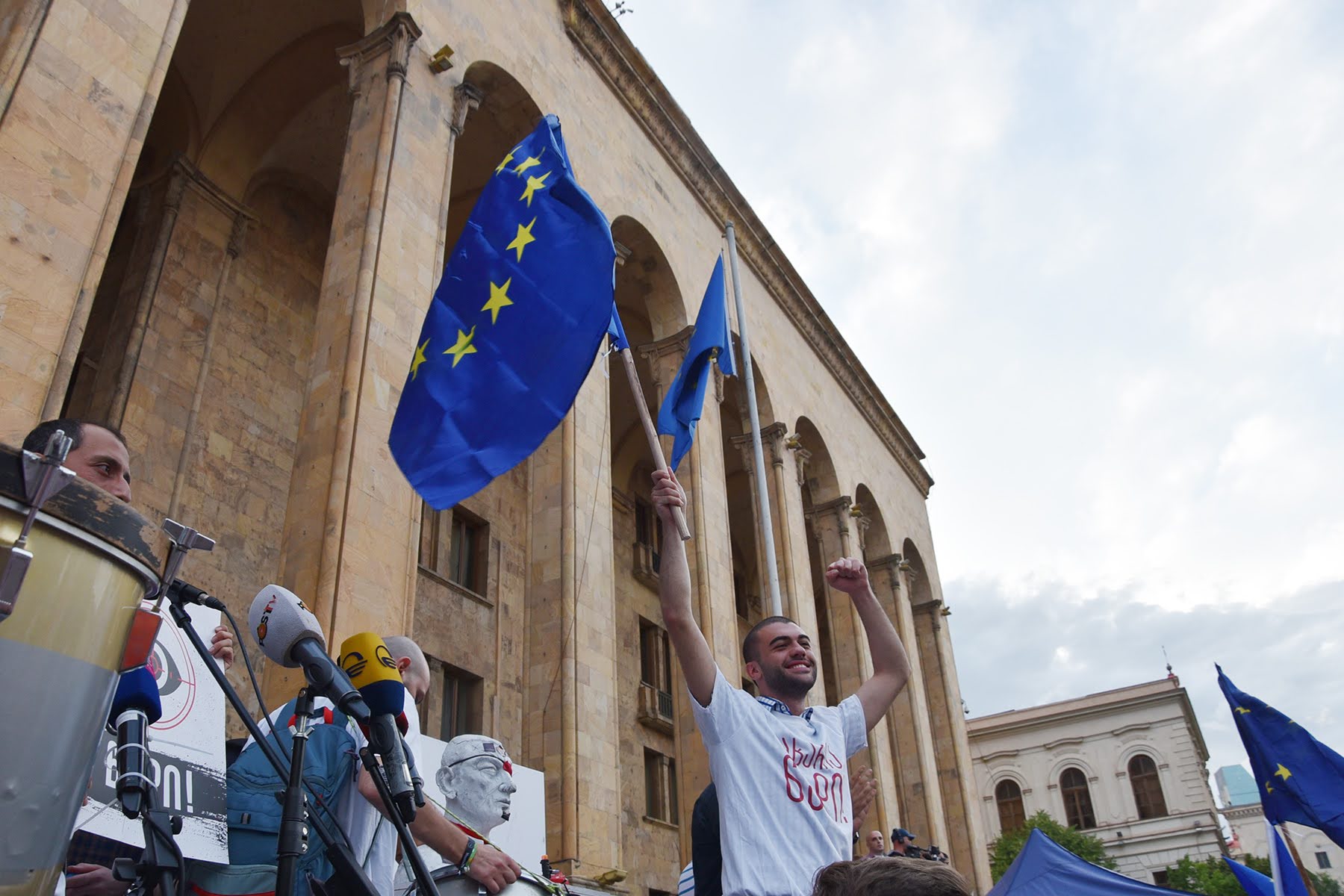
When Nodar took to the streets in Tbilisi, he met friends who had been living in Portugal, Germany, France, and Italy.
‘Many felt, as I did, that watching the events unfold from afar was unbearable’, he says. ‘Being so physically distant while our country was in crisis made them feel powerless’.
‘There is almost no support for Georgian Dream among the diaspora’, he explains, pointing to the elections in October, when opposition parties overwhelmingly garnered Georgians’ votes abroad, despite allegations of systematic disenfranchisement.
‘When Georgians are free from the pressures of intimidation, violence, and propaganda, they overwhelmingly vote against the current regime’, Nodar contends.
‘People are not scared — they’re getting angrier and angrier’
Tatia Kurashvili, a singer-songwriter, has lived in Germany for eight years. After the elections in October, she says she started to worry that hope was fading in her home country. But when protests erupted at the end of last month, she realised she had to return.
‘I am so proud of my people’, she says. ‘When you’re against this brutal face and so many repressions, there is this feeling of togetherness. But this huge mass of people without a leader — look at what we can achieve’.
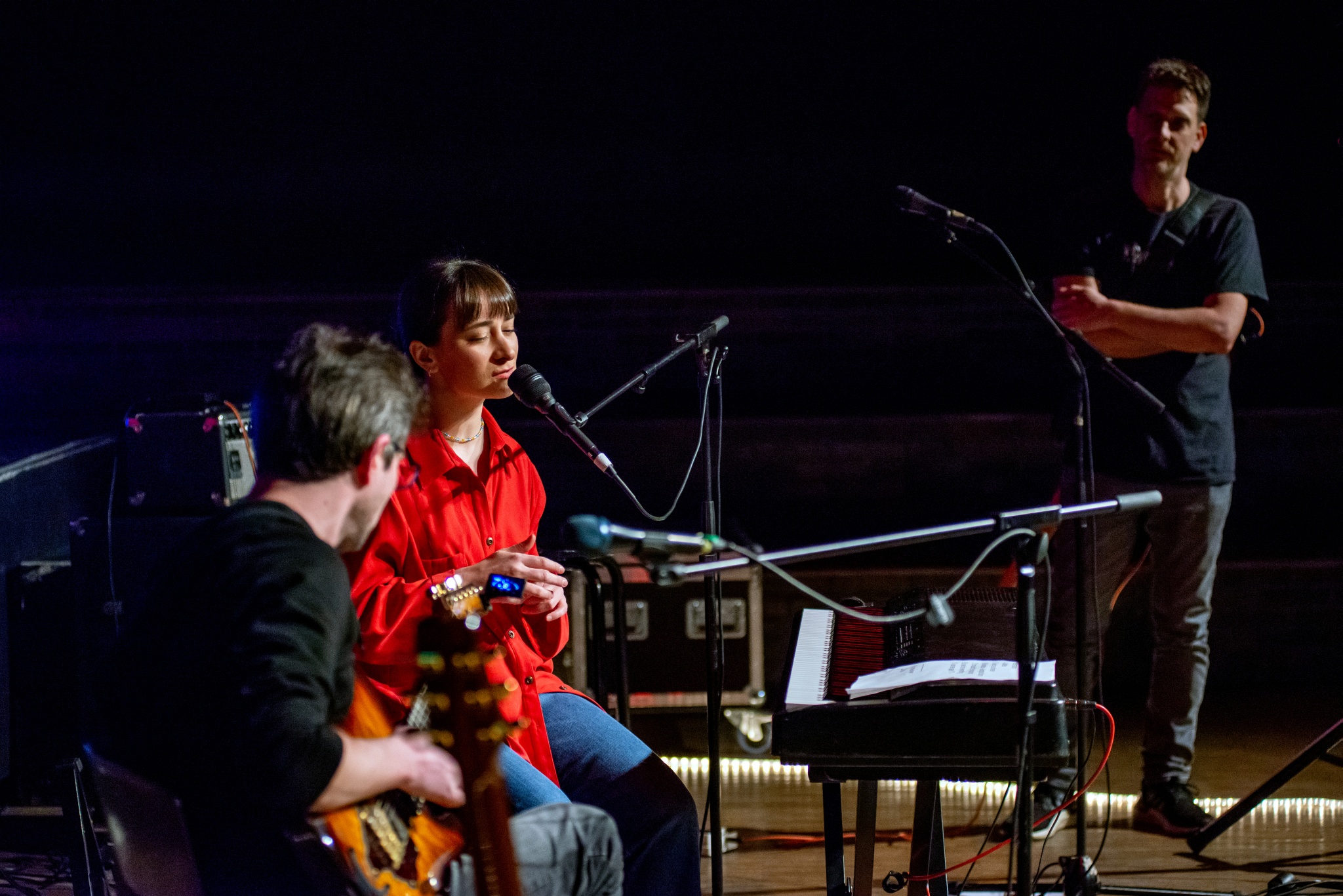
She is passionate about Georgia’s hopes of EU accession.
‘I was born in a small town in the 1990s. We didn’t have electricity or warm water. Now, I live in Berlin and I have the chance to see my country joining the EU — I couldn’t ever experience anything greater than that’, she says.
Additional reporting by James Lewis.



